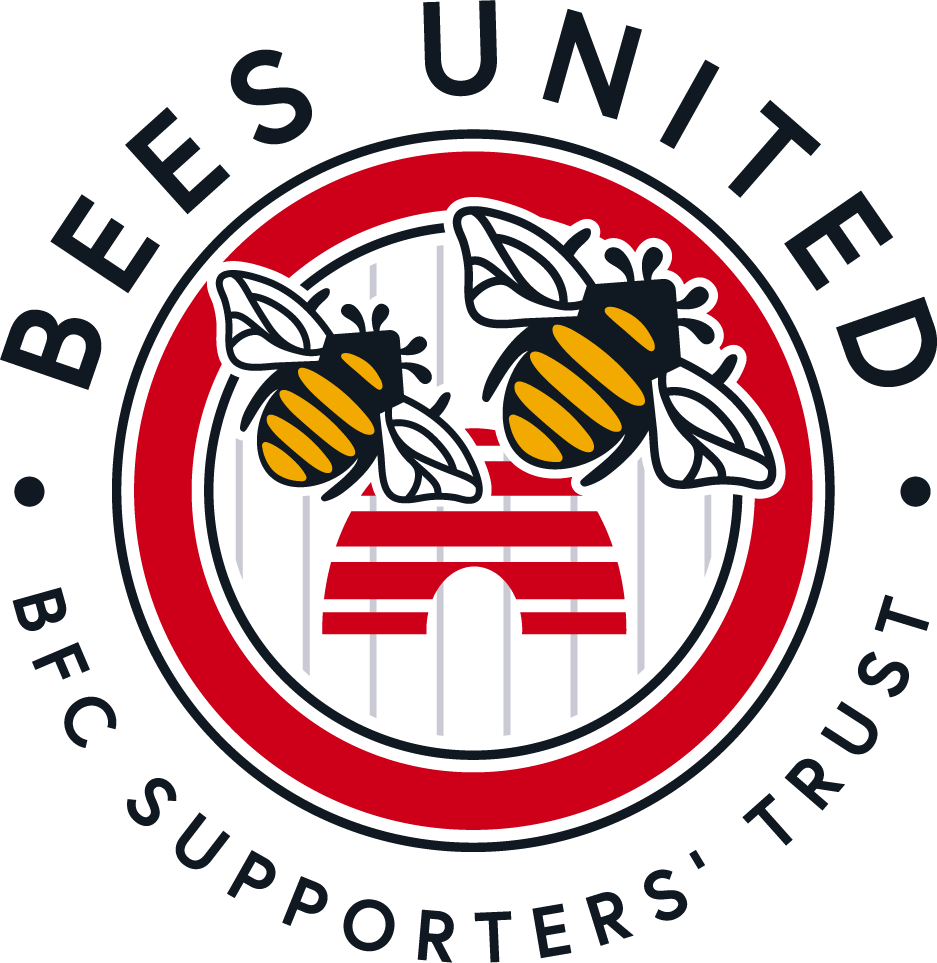Better regulation of football clubs through a licensing system is the only way to give the majority of clubs a sustainable future that balances sporting, commercial and social objectives, Bees United has told a parliamentary inquiry.
“The only hope for clubs like Brentford to prosper in the long term is to incentivise financial responsibility, level the playing field and reduce barriers to community stakeholders like Bees United,” the supporters’ trust has told the Culture, Media and Sport Select Committee’s Inquiry into Football Governance.
“The economic and regulatory environments in which we operate make it difficult for clubs that want to behave in a financially and socially responsible way to survive and compete with clubs that choose to take a high-risk, short-term ‘sugar daddy’ approach,” Bees United says in its written evidence, drafted by former chairman Brian Burgess.
Government intervention is needed because football governance rules in England and Wales are not fit for purpose, insists Bees United. Governing bodies are not independent – they are all self-interest groups in one form or another, often with limited power – and there is little or no governance that supports stable delivery of football as a core element of society. There is, however, “plenty of opportunity to maintain mismanaged clubs in their unwarranted league positions”.
“Brentford has to find ways to survive with limited income whilst trying to compete in a league with clubs which are pursuing unsustainable strategies that are not in the long-term interests of the clubs, their supporters or their local communities,” Bees United says in its submission, noting that despite its “financial challenges” Brentford won Football League Community Club of the Year Awards in 2006 and 2009, and has also been awarded Business in the Community’s Community Mark.
“To compete, we are forced to live beyond our means or suffer potentially terminal decline for adopting a responsible approach. The resulting instability and uncertainty is evidenced by the number of clubs failing to pay their taxes, entering administration and generally attracting adverse publicity,” the submission continues, noting that over sixty clubs have entered administration since 1992.
Bees United believes that football clubs should be regarded as different from other commercial organisations. They should be treated just like any enterprise in terms of company law and other fiscal requirements, but the specific sporting and community aspects of their activities should also be recognised. “These special dimensions should be regulated via a licensing regime that will ensure a level playing field for responsibly-run clubs in terms of sporting competition,” Bees United argues.
Noting that “prevention is better than punishment” and that “the token points-deduction for entering administration is shutting the gate after the horse has bolted”, Bees United insists: “Financial responsibility should be incentivised by imposing sporting sanctions for breach of clear and appropriate financial benchmarks.”
“A fundamental difference between sporting clubs and other businesses is that other businesses try to kill the competition. But if a sporting club puts the competition out of business, it has non-one to play and it fails as well. The integrity of the competition is as important as the success of the club,” maintains Bees United.
“There is too much unsustainable debt,” it argues. “Brentford is typical of clubs where historic debt has been accumulated to fund losses incurred in pursuit of short-term sporting success.” Admitting that its own financial resources are limited, Bees United’s solution is to harness interest-bearing debt to a level “where it can be serviced from normal operating income in all but exceptionally poor years of business performance.”
“The proposed regulatory regime should impose limits – via the professional club licence conditions – on the level of debt that can be carried on a club’s balance sheet,” Bees United says. “To ensure transparency,” it adds, “the measurement of debt should be clearly defined in terms of information required in published audited accounts.”
“Government intervention should govern the financing of football clubs such that they do not take on debt that cannot be serviced,” Bees United concludes, “even if the club is relegated from its current division.” “Government should act as a catalyst to force the industry to get its house in order.”
Bees United’s written evidence can be found here.
All 447 pages of evidence, including Bees United’s, can be found at http://bit.ly/e8UKwk
